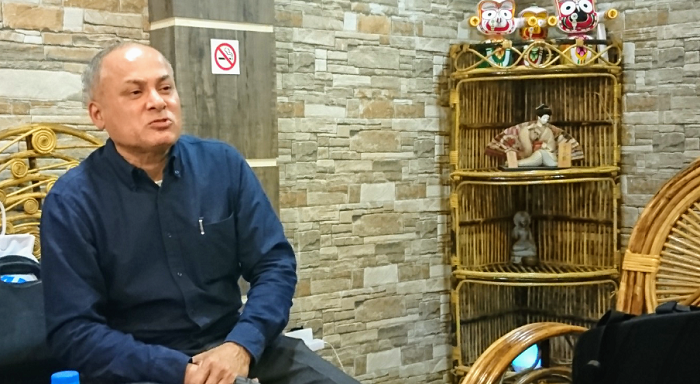Learn Japanese Language, Culture to Get Jobs: Kunna Dash
For the first time, Japan has plans to allow more than 500,000 foreign workers to be employed in agriculture, nursing care, construction, shipbuilding and lodging and hospitality industries by 2025. For this, the Japan has introduced Specified Skills” (tokutei ginou, 特定技能) visa from April 1, 2019.
New Delhi. Kunna Dash did everything – from serving tea, hot spicy curry for introducing the healing characteristics of Indian herbs and spices to the Japanese people; holding yoga and cultural events in Japan to promote Indian culture and set up school in India to make the Indian youths employable in Japan and also in Japan for Indian children there, and set up social welfare enterprise in Japan.
All his endeavors were aimed at deepening friendship ties between the two Asian giants and promoting India-Japan cultural exchanges and, and above all – ensuring Indians live a dignified life in Japan.
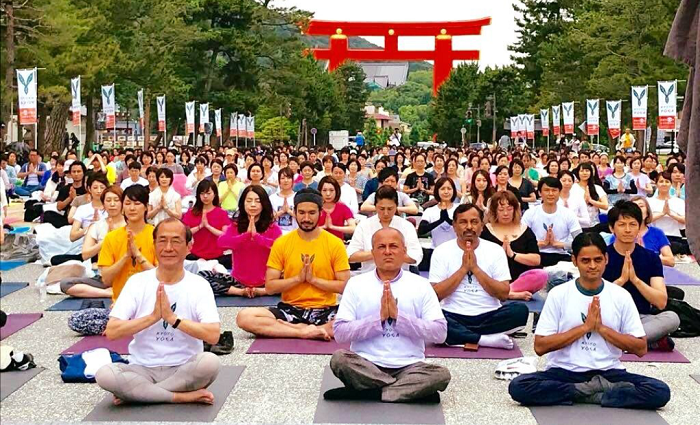
While acknowledging his valuable contribution on this front, the Japanese government appointed Kunna Dash who turned 50 in December last, the International Tourism Ambassador of Kyoto, Japan in 2015 and the second time in the year 2017 for three years till 2020.
But this relentless native of Puri in coastal Odisha, India – the city best known for Lord Jagannath temple and for its 100 km-long golden sea beach, wants to do more without a break.
“Japan is opening up the world of opportunities for the foreign skilled workers and I want Indians to avail this opportunity and become finically well off. For this, they need to have basic knowledge of the Japanese language and their culture. Under Technical Internship Training Program (TITP) scheme through NSDC Indian skilled workers can work in Japan for 3 to 5 years,” Kunna Dash told Asian Community News (ACN) Network.
For the first time, Japan has plans to allow more than 500,000 foreign workers to be employed in agriculture, nursing care, construction, shipbuilding and lodging and hospitality industries by 2025. For this, the Japan regime has introduced Specified Skills” (tokutei ginou, 特定技能) visa from April 1, 2019. It also waivered visa conditions requiring the worker to have a degree. They can upgrade to permanent residency too.
The Advisor of the National Skill Development Corporation (NSDC), Kunna Dash set up Chandra Sekhar Academy, a CBSE Affiliated Senior Secondary School and Japanese Language & Culture School in Balighai, Puri in 2004.
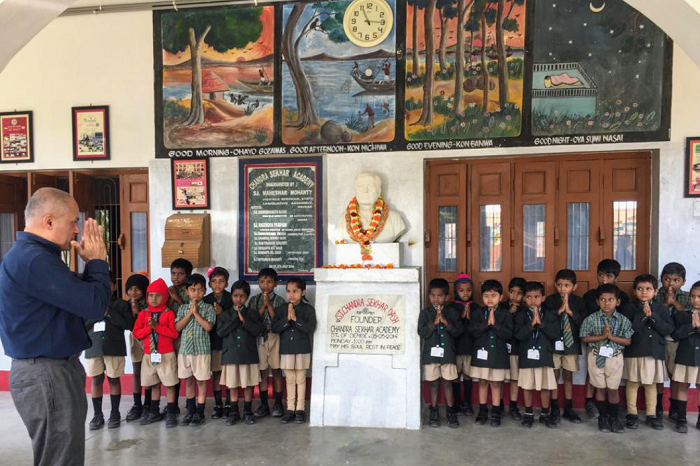
“I can impart the Japanese language to these people in my school in Puri. I also have plans to open schools in Delhi, and Varanasi and Kolkata to teach Japanese to our workers. Within 5-6 months they can have basic knowledge of Japanese. Since Japan is a high-tech country, there remains always a demand for our young engineers if they can have little access to the Japanese language,” Dash added.
The visionary Kunna Dash already foresaw that the Indian relocating to Japan would need Indian education avenues too for their wards there. For this, he set up a Chandra Sekhar Academy International School with CBSE curriculum and affordable fee structure in Kyoto, in Kansai region, Japan in April 2018, the first ever Indian school in Western Japan. He named the school in the memory of his father late Chandra Sekhar Dash.
Prior to this, there were no Indian-based schools here. And whatever international schools existed, are too expensive to afford. And in Japanese Schools, the medium of teaching is Japanese, not English.
“Indian expatriates in Japan now can have their children study here without the fear of missing out on studies while they work in Japan. In fact, I want to spread the education base for Indians in Japan but cities like Tokyo are very expensive to have schools. For this, I am looking forward to a solution in information technology (IT) through which I can reach out to all Indians staying across Japan by offering them online education to their children,” Dash said.
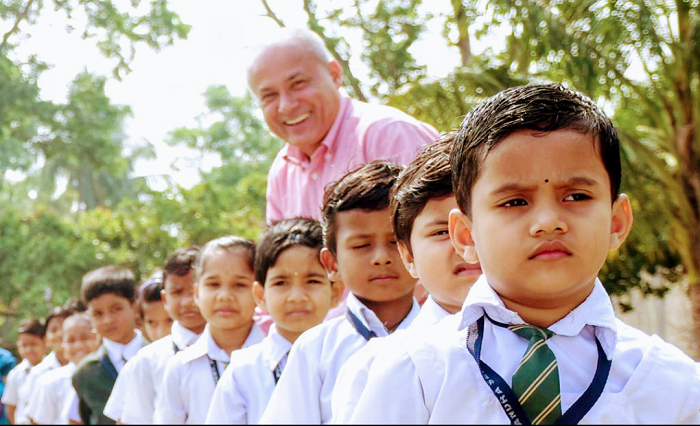
According to Dash, it was not possible to set up a school in Hiroshima or Kobe where only a handful of Indians are living. For them, an online solution for imparting education could work better.
“I am looking for some individual or organization to support him in offering technology for reaching out to the children of Indians living in far-flung areas of Japan,” Dash said.
In his commendation letter to Dash, the Mayor of Kyoto Daisaku Kadokawa said, “I would like to express my deep respect and gratitude to your tireless efforts to develop friendship between India and Japan as president of IJFC and as Visit Kyoto Ambassador.”
The story behind Kunna Dash’s love for Japan:
Born on December 9, 1969, Kunna Dash had started helping his father Chandra Sekhar Dash at the tender age of 15 in the hotel Santana the latter had started in Puri in the year 1952.
During the 1980s and early 1990s, as Japanese tourists started visiting Puri and stayed at their hotel Santana, Kunna had an opportunity to interact with them. He was so impressed with the Japanese that he had started speaking broken Japanese too.
“Soon I became familiar and popular among the Japanese people. I found them very kind and nice. This motivated me that I should also go to Japan and learn about this awesome place and its development. I had an urge to meet Japanese people because they are so honest, humble and punctual having good attitude, sharp mind and are hard-working.
In 1990, Kunna Dash visited Tokyo, Yokohama, Hiroshima, Nagasaki, Wakayama, Kobe, Osaka, Nara, Kyoto and many more places in Japan.
“I felt extremely awesome when I visited the homes of Japanese people. My next visit was in 1993 and I never looked back. That time I thought to promote India with Japan.”
Indians eat spicy curry in a hot country, Japanese exclaimed!
“Here, I faced a common question from Japanese - why do Indians eat spicy curry in a hot country? I explained to them that the spices used in Indian curry have got herbal and Ayurveda benefits for our body. For this, I had to cook the food there and served them instantly. It was then I decided to set up an Indian restaurant. My first Indian restaurant was in Kobe where I also started some weekend cultural activities like yoga, dance, musical concert etc. at the same place to promote India and its habitat,” said Kunna Dash adding that he would serve them Indian tea free.
Now in and around Kansai alone there exists more than two hundred Indian restaurants.
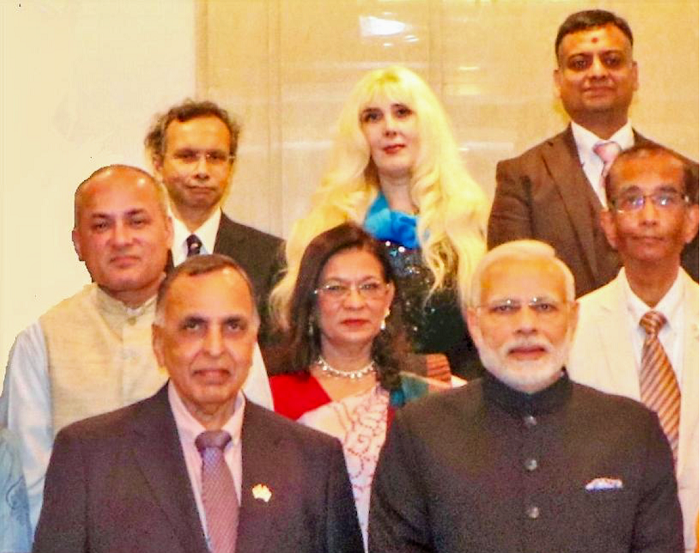
Kunna Dash’s second big initiation in Japan – India Japan Friendship Center:
In 2002, he opened a society in Osaka, Japan named India Japan Friendship Center (IJFC), a Non-Profit Organization. The aim of this society was to exchange culture, education, tourism and commerce between the two countries. Every year IJFC organizes events in both countries to promote Indian Culture in Japan and vice-versa and keeps on doing such small and big works.
IJFC looks into the welfare and wellbeing of the Indian families so that they do not feel that they are out of India rather they feel at home. Dash said that it was an attempt to create a bridge that helps to pass over and communicate between people to people better.
Some awards to acknowledge his contribution:
In 2007 – the India-Japan Friendship Year, the Japanese government honored Kunna Dash with a Certificate of Appreciation. In 2009, Kansai Television conferred ‘Ningen-Kokuho’ Award on him.
Dash was also awarded in 2012 during the 60th anniversary of India-Japan Diplomatic ties.
In 2015, Kunna dash was appointed as International Tourism Ambassador of Kyoto, Japan for the term 2015 to 2017. And in 2015 he was awarded Naniwa Prize from Osaka city.
And in 2017 again, Kunna Dash was appointed as International Tourism Ambassador of Kyoto, Japan.


